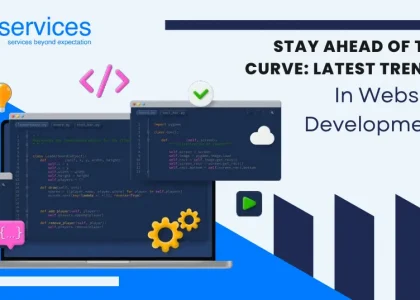In today’s digital era, having a strong online presence is essential for businesses and individuals alike. A well-designed website is the cornerstone of establishing that presence and effectively engaging with your target audience. However, website development can be a complex and constantly evolving field. To help you navigate this dynamic landscape and create websites that stand out, we’ve gathered expert insights and proven strategies to guide you on your journey to mastering website development.
Planning and Strategy:
Before diving into website development, it’s crucial to have a clear plan and strategy in place. Define your website’s goals, target audience, and key features. Conduct thorough research on industry trends, competitor websites, and user preferences. This foundational step will lay the groundwork for the entire development process.
User Experience (UX) Design:
User experience is at the heart of successful websites. Your site should be intuitive, visually appealing, and provide a seamless browsing experience. Start by creating wireframes and prototypes to visualize the layout and functionality of your website. Pay attention to factors like navigation, readability, responsive design, and accessibility to ensure an optimal user experience across different devices and platforms.
Responsive Web Design:
With the increasing use of smartphones and tablets, responsive web design has become a necessity. Responsive design ensures that your website adapts and looks great on screens of all sizes. Mobile-friendliness is not only crucial for user experience but also impacts your site’s search engine rankings. Embrace responsive design techniques such as fluid grids, flexible media, and media queries to create a consistent and accessible experience across devices.
Content Management Systems (CMS):
A CMS simplifies website development and management, even for those without advanced technical skills. Popular CMS platforms like WordPress, Drupal, and Joomla provide user-friendly interfaces and a wide range of themes and plugins to customize your site. Evaluate your requirements, consider scalability and ease of use, and choose the CMS that best aligns with your goals.
Search Engine Optimization (SEO):
Developing a beautiful website is only half the battle; getting it noticed by search engines and users is equally important. Employing effective SEO strategies will increase your website’s visibility and organic traffic. Conduct keyword research, optimize page titles, meta descriptions, and headings, create high-quality content, and build backlinks to improve your site’s search engine rankings.
Performance Optimization:
In today’s fast-paced world, website speed is critical. Users expect websites to load quickly, or they will abandon them and move on. Optimize your website’s performance by minimizing file sizes, enabling caching, leveraging content delivery networks (CDNs), and compressing images. Regularly monitor and analyze your site’s performance to identify and address any bottlenecks.
Security:
Website security is paramount, both for protecting user data and maintaining your online reputation. Implement security measures such as SSL certificates, strong passwords, regular software updates, and firewalls. Backup your website regularly and have a plan in place to handle potential security breaches.
Testing and Debugging:
Thoroughly test your website across various browsers, devices, and operating systems to ensure consistent functionality and visual appeal. Check for broken links, validate HTML and CSS, and test form submissions. Implement analytics tools like Google Analytics to track user behavior and gather insights for further optimization.
Continuous Improvement:
Website development is an ongoing process. Regularly analyze user feedback, track key performance indicators (KPIs), and stay up-to-date with industry trends. Incorporate new features, optimize existing ones, and evolve your website to meet the changing needs of your audience.
Collaboration and Lifelong Learning:
Stay connected with the web development community to share insights, learn from others, and stay abreast of the latest techniques and technologies. Attend conferences, participate in forums, and engage in online communities to expand your knowledge and network with like-minded professionals.
Conclusion:
Mastering website development requires a combination of technical skills, strategic thinking, and a deep understanding of user needs. By following these expert insights and proven strategies, you can build websites that not only captivate and engage your audience but also drive business success. Remember, website development is a continuous journey, and staying adaptable and open to learning will help you stay at the forefront of this ever-evolving field. Happy coding!
Check Out Our Web Development Packages and SEO Packages.









One thought on “Mastering Website Development: Expert Insights and Proven Strategies”
Comments are closed.